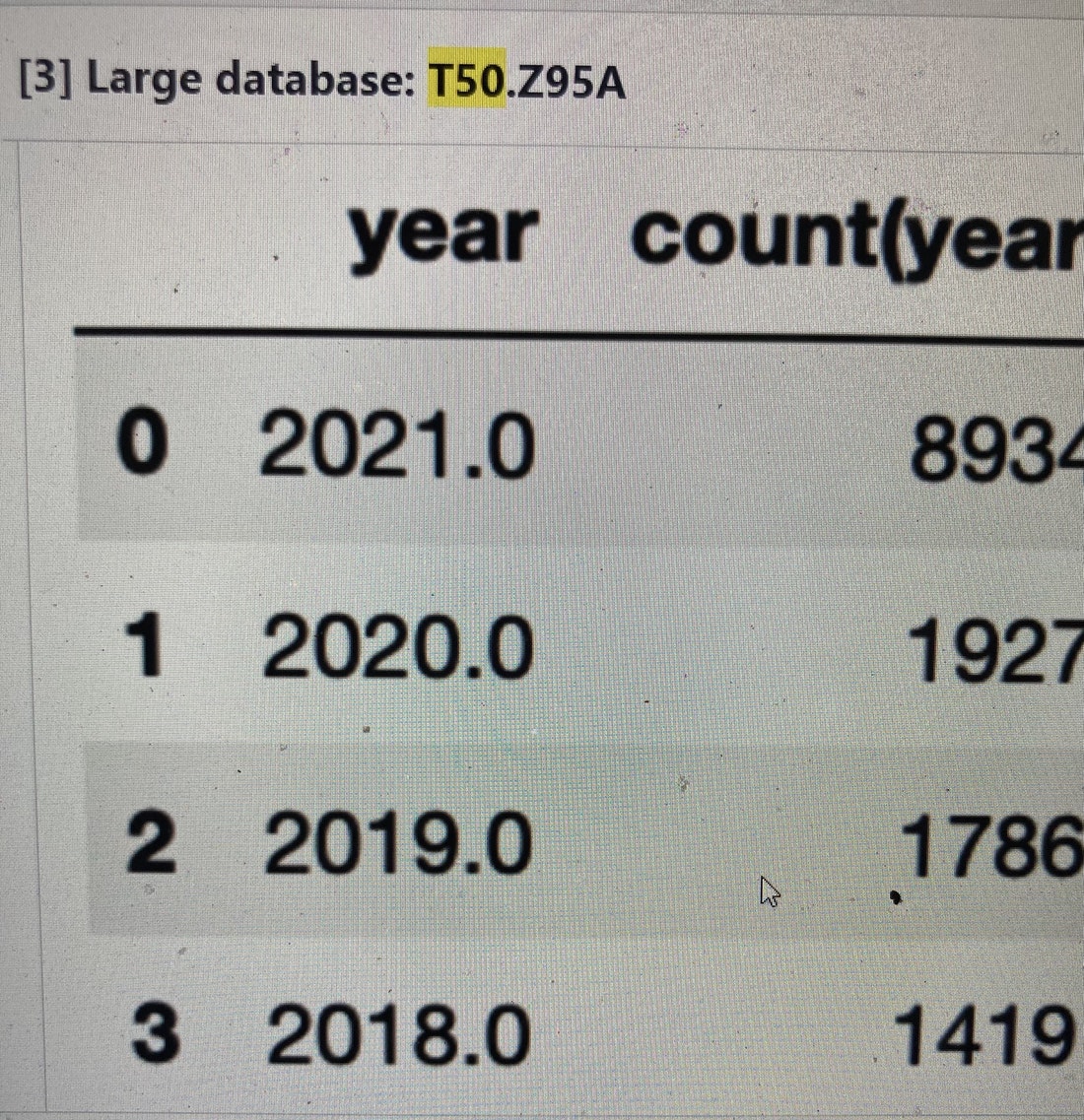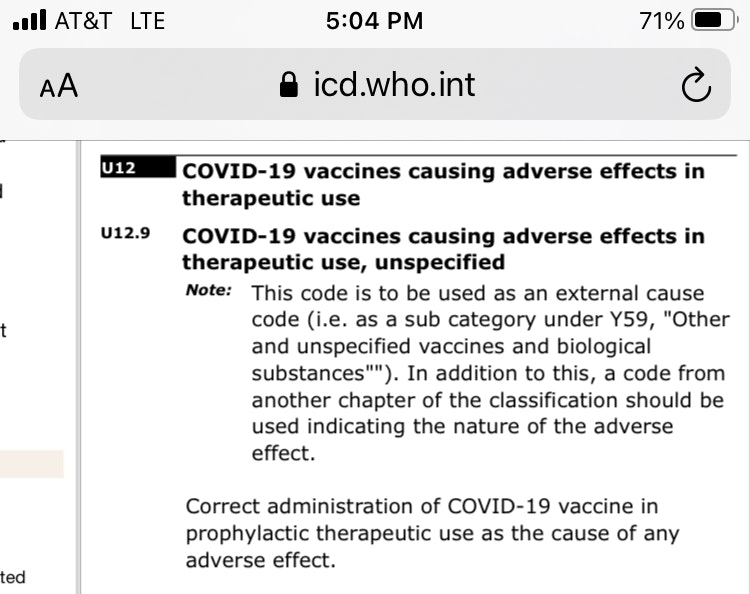Internal hospital data confirm a huge increase in patients with vaccine side effects in 2021
Guest Post by Alex Berenson
At many hospitals, the number of patients reported to have post-vaccine injuries rose fivefold or more after Covid vaccines were introduced in December 2020, medical records databases show.
For example, one database including 100 institutions included more than 8900 reports in 2021, compared to fewer than 2000 in 2019 and 2020. A different system reported an increase from 162 in 2019 to more than 1100 in 2021.
Several people with access to different databases provided the figures, on the condition that they remain anonymous, as the databases are proprietary and confidential. All the databases showed a similar increase, ranging from four-fold to more than 10-fold.
The rise parallels the massive increase in vaccine injuries and deaths reported to VAERS – the federal Vaccine Adverse Events Reporting System – in 2021. Over 740,000 VAERS reports were submitted last year, compared to 50,000 in 2020. Of the 2021 reports, 700,000 were Covid related.
Vaccine advocates insist that VAERS reports are unreliable and do not prove causation because anyone can submit a VAERS report. The figures in these databases cannot be similarly dismissed. Access to them is strictly limited – and represents the clinical judgment of the physicians treating patients.
The increase is particularly stunning because American medical records systems won’t accept a newly created code meant for the reporting of Covid-specific vaccine injuries. The problems can only be recorded as non-specific vaccine injuries, using an earlier diagnosis code.
That earlier code, called T50.Z95A, is the one which has shown the huge increases in 2021.
Further, hospitals receive no financial benefit from including the T50.Z95A code in patient records. Adding the code does not increase the reimbursement they receive. Thus, aside from accurately documenting what is happening to their patients, they have no incentive to record vaccine injuries.
—
Medical coding is an obscure but crucial part of the global healthcare system. Whether they are seen at hospitals, doctors offices, or elsewhere, patients are tracked with codes that are supposed to capture their illnesses and treatment.
The World Health Organization oversees the coding system, which is now called the International Classification of Diseases-Version 10. The ICD-10 has almost 70,000 different diagnosis codes, far more than the previous ICD-9 database. The United States includes even more codes for hospital procedures.
Each code is a mix of letters and numbers representing a specific disease or illness. Codes beginning with A, for example, are used for infectious diseases, beginning with A00.0, for patients with cholera. Some codes – notably many poisoning codes, which begin with T – cannot be used as primary diagnoses but only to provide information about the underlying causes of an illness.
As Sars-Cov-2 emerged in 2020, the WHO added an ICD-10 code for confirmed Covid cases called U07.1, and a second for suspected cases called U07.2. U codes are used for emergency purposes; before U07.1, the previous U code was U07.0, for vaping-related illnesses.
Last year, international health authorities added diagnosis code U12.9, for doctors to identify patients who had problems following a Covid vaccination.
—
The U12.9 code might help provide crucial information for governments and independent researchers not just about the rate of Covid vaccine injuries but about what specific types of injuries they are causing.
For example, checking the U12.9 code against myocarditis diagnoses would likely be the simplest way to count the number of myocarditis cases which physicians believed were vaccine-related.
But the U12.9 code cannot be used in commonly used medical records systems in the United States – or almost anywhere else. Anyone who tries to enter it will find it rejected.
Instead, coders who want to try to capture Covid vaccine injuries must use an earlier ICD-10 code called T50.Z95A for initial visits. (Later visits use codes T50.Z95D or T50.Z95S.)
The T50.Z95A code is not specific to Covid vaccines – it is a grab-all for side effects for most vaccines, though smallpox and some other shots have their own codes. (To give you a sense of the complexity and level of detail of ICD-10 database, it also has different codes for intentional poisonings or suicide attempts.)
Because the T50.Z95A code does not affect billing or reimbursement, including it in patient records is a low priority for both coders and medical professionals, coders say. Thus its explosive growth in databases last year is even more surprising – and more evidence that the VAERS figures showing a nearly 15-fold increase in vaccine injuries in 2021 reflect a real increase in harm.
The corrupt establishment will do anything to suppress sites like the Burning Platform from revealing the truth. The corporate media does this by demonetizing sites like mine by blackballing the site from advertising revenue. If you get value from this site, please keep it running with a donation. [Burning Platform LLC – PO Box 1520 Kulpsville, PA 19443] or Paypal




